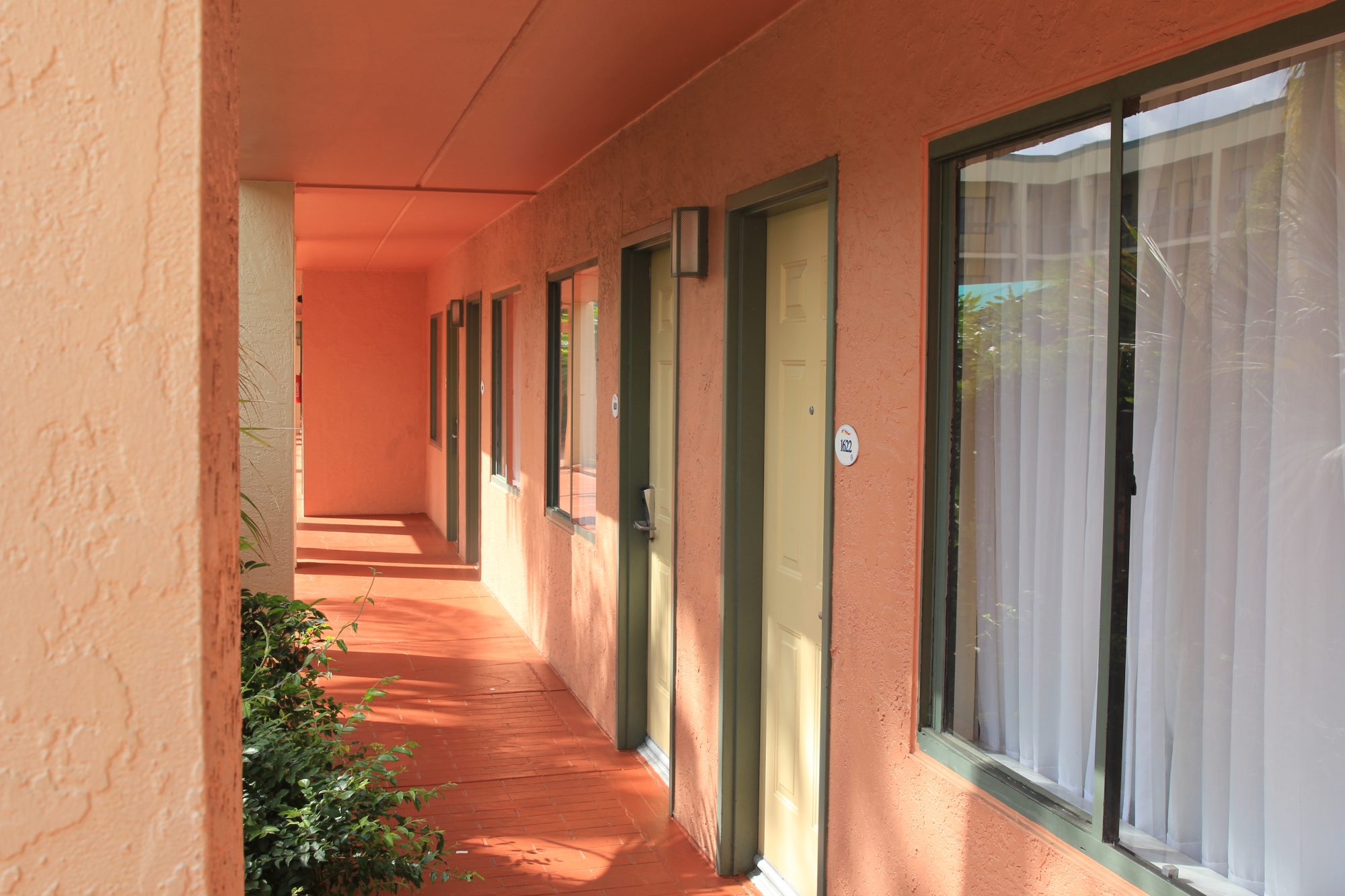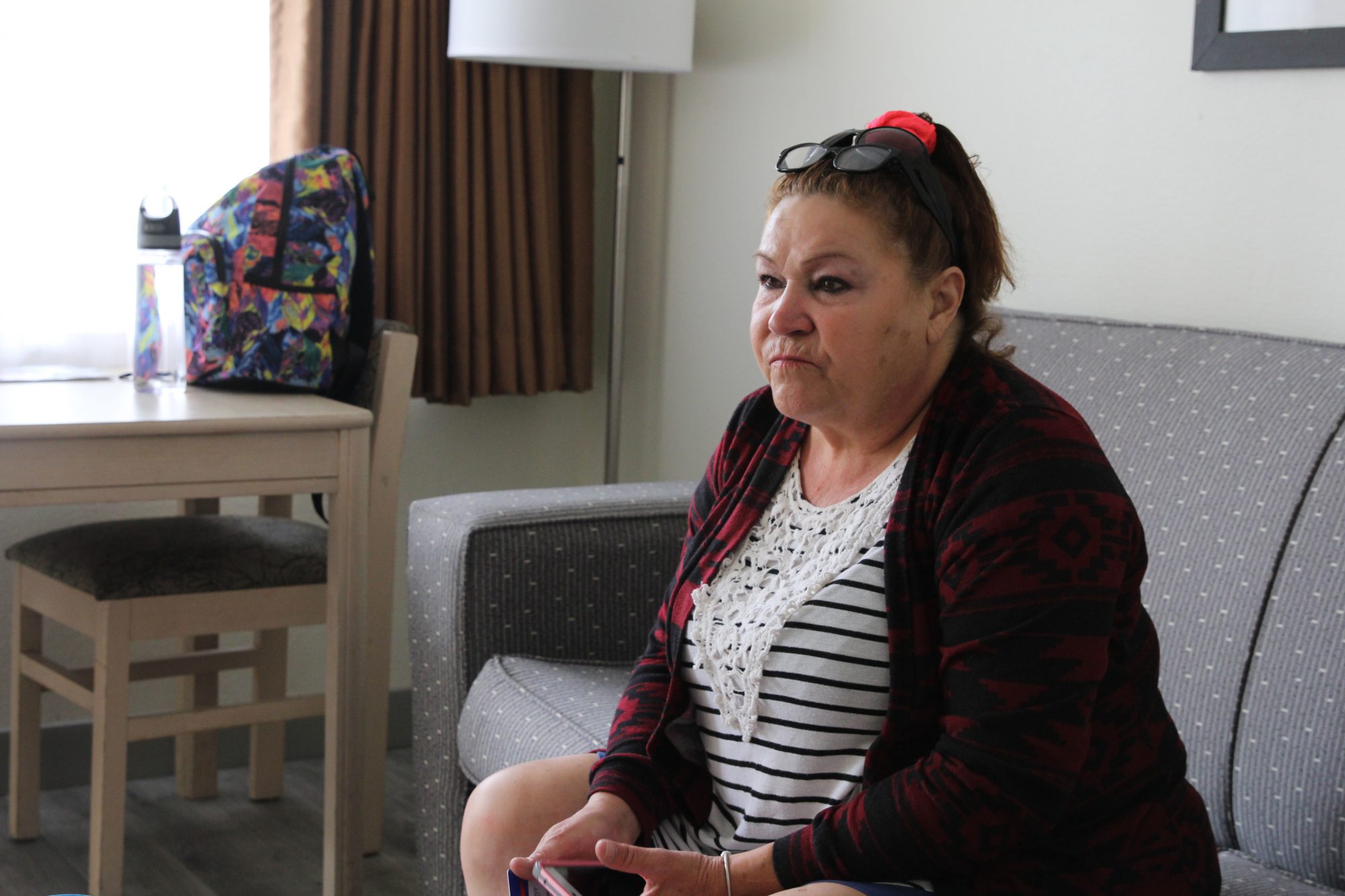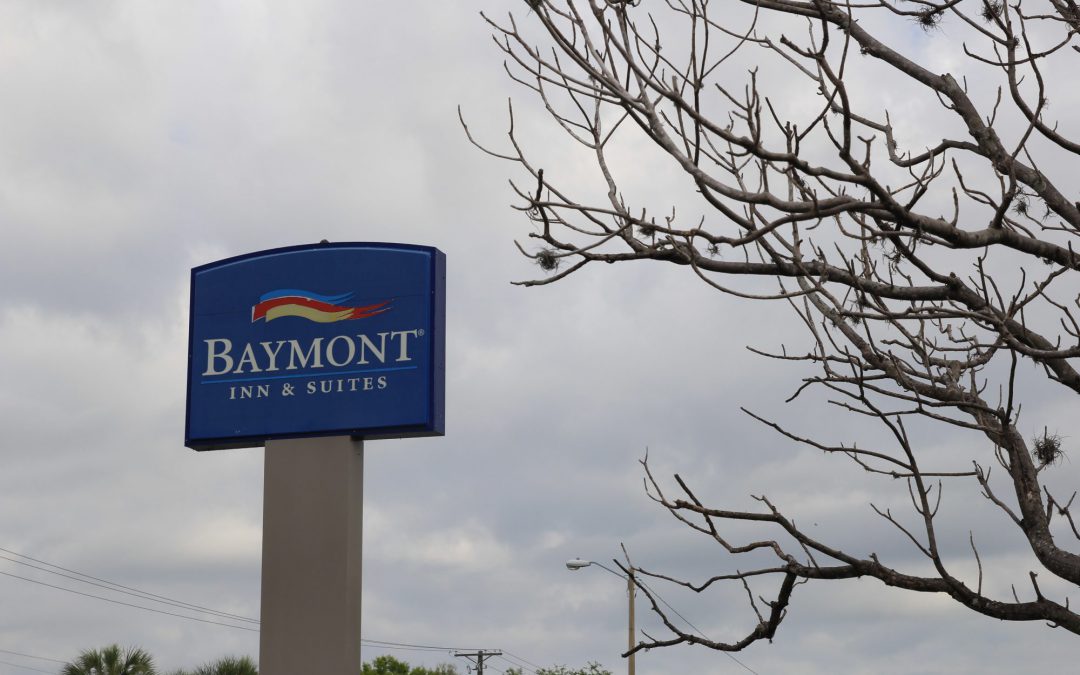TAMPA, Fla. — The Baymont Inn & Suites sits on the edge of the University of South Florida campus outside Tampa. A ceiling fan blows humid air around the lobby, where an array of giant stuffed animals observe tourists coming and going in the early spring warmth.
But not all of Baymont guests are vacationers looking for palm trees and sunshine. About 15 rooms are home to Puerto Ricans displaced by Hurricane Maria.
The hotel is one of more than 250 in Florida that entered agreements with the Federal Emergency Management Agency to provide rooms for Puerto Rican evacuees under the Transitional Sheltering Assistance program.
The Baymont began hosting evacuees in November, and has put no cap on the number of rooms open for TSA residents, according to General Manager Connie Bergkvist. There are a total of 120 rooms available at her hotel.
The TSA program, which is providing aid in 38 states with the largest concentration in Florida, was set to end months ago. But the deadline has been extended multiple times because of continued poor living conditions in Puerto Rico; the latest extension shifted the end date from March 20 to May 14.
In order to renew their aid applications, evacuees will need to show progress in their permanent housing plans during a case-by-case midterm review scheduled for April 20. Puerto Ricans will need proof of a long-term solution, through either an employment or a housing contract, if they plan to stay in the U.S. after their transitional contracts expire.

Evacuees are struggling to determine their next steps. While some Puerto Ricans have found housing solutions or jobs, others don’t know what the future will look like without their FEMA-funded hotel rooms. (Stavros Agorakis/MNS)
“If [the deadline] is extended, … [the evacuees] are welcome,” Bergkvist said.
Learning English for an uncertain future
Sonia Noemi Rios, 48, spends most of the day in her hotel room, poring over English language workbooks. She looks up words in an online Spanish to English dictionary when she’s struggling with pronunciation. The first phrase she learned is essential to life in a hotel: “Can I have a towel, please?” She pronounces it with an American accent.
Rios caught a flight to Tampa at the beginning of December without a plan. Her home in Bayamón, Puerto Rico, was hammered by Hurricane Maria on Sept. 20. She lost almost everything to the storm.
Rios said she arrived believing that she would have to live on the streets. But when she walked out of the plane into the Tampa International Airport, FEMA representatives were at a table to help folks arriving from Puerto Rico find medical care and short-term housing. She said FEMA placed her in the Baymont the same day and has guaranteed to cover her room until April 20.
“I am happy. My room has a small kitchen, I have two beds,” she said. “But the month will pass quickly, and I hope I find a solution before April 20 comes.”
Rios’s shiny lip gloss, shy smile and black T-shirt, embellished with the word “blessed” in sequins across her chest mask the fear and uncertainty of being an evacuee.
“I send [FEMA] letters explaining my situation,” she said. “I write to them: ‘I don’t have a house and have nowhere to go. I don’t know, and I’ll end up on the streets, I just don’t know.’”
What Rios does know is that she won’t be returning to Puerto Rico. On top of the devastation from the storm, she said doctors in her hometown aren’t equipped to treat her medical conditions properly.
Her disabilities, byproducts of the cancer she overcame a few years ago, prevent her from working, she said. Even if she were equipped to work, she doubts she’s be able to find a decent job in Bayamón.
“My mother who is there says that crime has gone up,” she said. “Jobs aren’t there anymore. Many are living without light or water.”
Recreating a hometown
Crucita Velazquez, 58, chose the hotel because her niece works there. She was visiting family in Grand Rapids, Mich. when Hurricane Maria severely damaged her home in Yabucoa, Puerto Rico. She knew she couldn’t return and hated the cold Michigan winter so she applied for FEMA aid to cover a room in the Baymont, where Veronica Velazquez manages the front office.
Another Yabucoa family followed. Carlos Velazquez, who isn’t related to Crucita or Veronica but grew up near them on the island, moved to the Baymont with his mother.
While her niece Veronica attends to the front desk at the Baymont on a Saturday, Crucita watches her baby, who sleeps soundly in her car seat. When Crucita visits the lobby from her room on the second floor, Carlos trails behind, carrying the car seat.
“It’s not been easy, but I’m surviving thanks to my niece,” Crucita said. “[Being with her has] been real nice. Carlos helps out, and the people here have been real nice.”
Crucita has tried to make her room more like a home during her three months in a hotel room. She cooks rice and beans to share with Veronica and Carlos, on a small electric stove that she stores in a cardboard box. Cans of food are stacked in TV cabinet drawers.
She said the people at the hotel are friendly, and that people stop by her room to visit. But she’ll have to move out of the Baymont soon because FEMA will stop paying for the room on March 20.

Crucita Velazquez, a Puerto Rican evacuee from Yabucoa, chose to live at Baymont because her niece, Veronica, works there. (Stavros Agorakis/MNS)
Carlos and his mother have already moved across the street, where they found an apartment they could afford. He’s enrolled in Tampa’s Howard W. Blake High School, where he likes to play pick-up basketball. Still, Carlos doesn’t know if they’ll move to another apartment soon, and he doesn’t know if they’ll return to Puerto Rico.
“There’s not much more we can do for you”
Henry Cruz had never been to the United States before Hurricane Maria hit his hometown of Barranquitas in Puerto Rico. Suddenly left without a job or viable home, he flew to Tampa because he’d heard about some job openings, but when he arrived, the positions were filled. After a few days at the Baymont, he got a job stocking freezers at the nearby Walmart.
Like Rios, though, Cruz does not speak English and he often cannot understand what his supervisors, all of them English-only speakers, are asking from him at work.
“The experience at Walmart is something that I wouldn’t hope for,” he said. “My only hope is work, but the boss is demanding, and orders us around to do this, do that. It’s been different.”
When Cruz returns to the Baymont after work, he said he has no one to talk to. Since he relocated to Florida, where he has no immediate family or friends, he spends his afternoons in his small hotel kitchen, cooking meat with garlic and onions and waiting for the day he can return to the island.
FEMA cannot help Cruz find an affordable apartment in the U.S. either; officials have repeatedly told him “there’s not much more we can do for you,” he said. Florida Gov. Rick Scott said earlier this year that Florida doesn’t have a long-term solution to continue providing affordable housing.
But Cruz said FEMA has assisted his family back in Puerto Rico by providing volunteers and repair funds toward rebuilding Barranquitas infrastructure. Although he doesn’t know when the entire town will be rebuilt, he is ready to move back.
“Until the [April] 20th day, I’m going to stay here,” Cruz said. “Just the 20th day.”
What now?
At least 60 percent of Puerto Ricans receiving TSA assistance in the United States don’t plan to return to the island when funding expires, a FEMA representative said, although that could change in the future as the island rebuilds.
In Florida, “individuals are redirecting their lives,” said Richard Maladecki, CEO of the Central Florida Hotel and Lodging Association. “They’re following their dreams.”
But evacuees are still struggling to determine their next steps. Some Puerto Ricans, like Carlos and Cruz, have found housing solutions or jobs. Others, like Rios, don’t know what the future will look like without their FEMA-funded hotel rooms.



